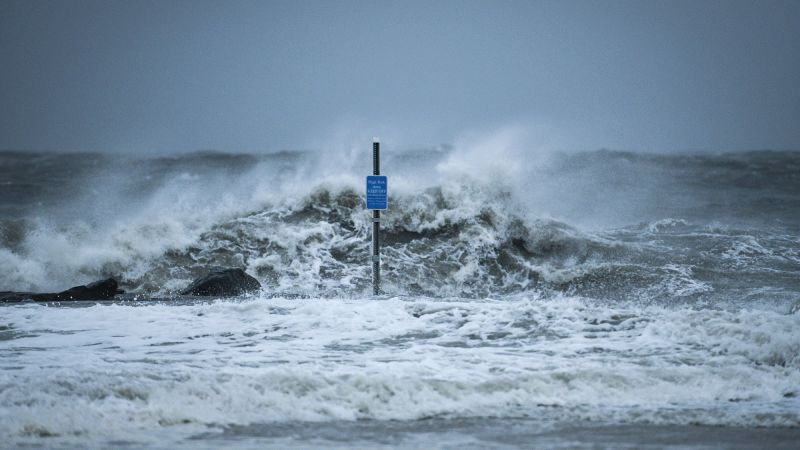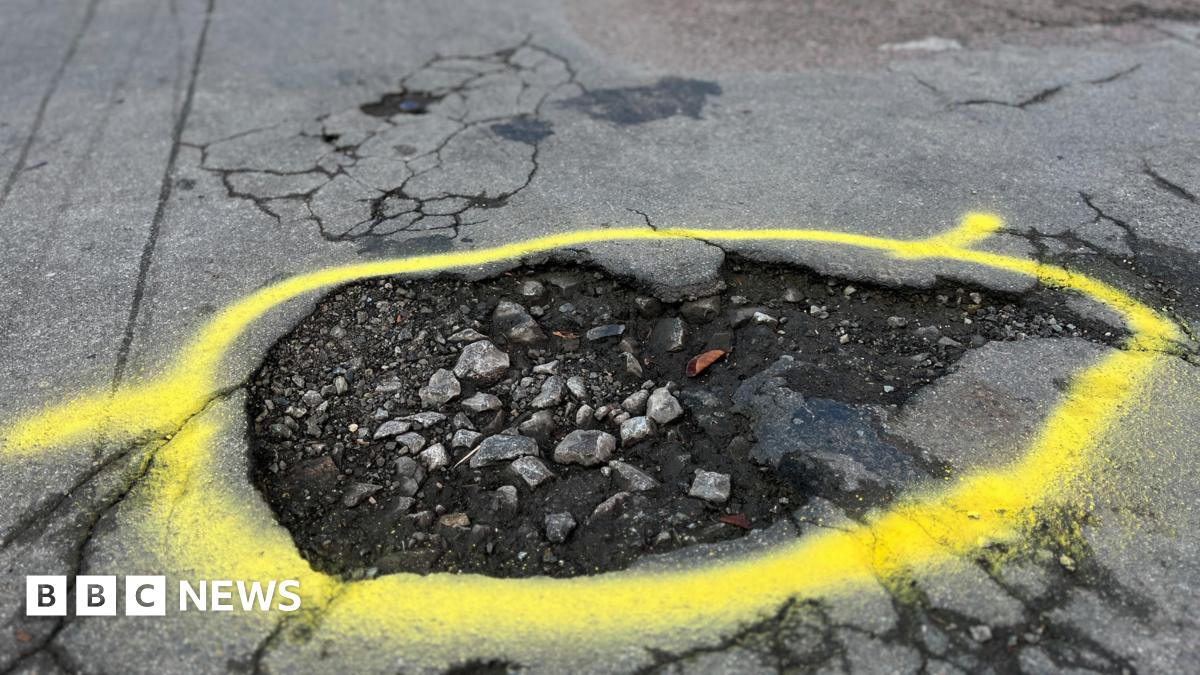Climate Change And The Slowdown Of A Key Ocean Current: Rising Sea Levels In The US

Welcome to your ultimate source for breaking news, trending updates, and in-depth stories from around the world. Whether it's politics, technology, entertainment, sports, or lifestyle, we bring you real-time updates that keep you informed and ahead of the curve.
Our team works tirelessly to ensure you never miss a moment. From the latest developments in global events to the most talked-about topics on social media, our news platform is designed to deliver accurate and timely information, all in one place.
Stay in the know and join thousands of readers who trust us for reliable, up-to-date content. Explore our expertly curated articles and dive deeper into the stories that matter to you. Visit Best Website now and be part of the conversation. Don't miss out on the headlines that shape our world!
Table of Contents
Climate Change and the Slowdown of the Atlantic Meridional Overturning Circulation (AMOC): Rising Sea Levels Threaten the US
The Atlantic Meridional Overturning Circulation (AMOC), a crucial ocean current system, is slowing down, and the implications for the United States are alarming. This slowdown, largely attributed to climate change, poses a significant threat to coastal communities through accelerated sea-level rise and increased extreme weather events. Understanding this complex issue is crucial for preparing for and mitigating the potential consequences.
What is the AMOC and Why is it Important?
The AMOC is a vast system of ocean currents that acts like a giant conveyor belt, transporting warm water from the tropics northward towards the North Atlantic. This system plays a vital role in regulating global climate, influencing weather patterns and distributing heat around the planet. Think of it as a massive heat engine, impacting everything from temperature to precipitation across the globe. A weakening AMOC disrupts this delicate balance.
The Link Between Climate Change and AMOC Slowdown:
Melting glaciers and ice sheets in Greenland and Antarctica are adding vast amounts of freshwater to the North Atlantic. This influx of freshwater reduces the salinity of the ocean water, making it less dense. Less dense water is less likely to sink, which is a key driver of the AMOC. Furthermore, rising global temperatures are also impacting the density of ocean waters, further contributing to the slowdown. Scientific studies increasingly point towards a significant weakening of the AMOC, with some suggesting a potential collapse in the coming decades.
Rising Sea Levels: A Major Threat to the US Coastline:
A weaker AMOC has several significant consequences, most notably for the US:
- Accelerated Sea Level Rise: The slowdown of the AMOC can lead to a faster rise in sea levels along the US East Coast. This is because the current plays a role in regulating sea level, and its weakening disrupts this balance. Coastal erosion, flooding, and the displacement of communities are imminent threats.
- Increased Extreme Weather Events: Changes in ocean currents can significantly impact weather patterns. A weaker AMOC is linked to more frequent and intense hurricanes, heatwaves, and cold snaps, particularly along the eastern seaboard.
- Impacts on Marine Ecosystems: The AMOC is vital for marine ecosystems. Changes in water temperature and salinity can disrupt marine life, impacting fisheries and the overall health of ocean habitats.
What Can We Do?
The situation underscores the urgency of addressing climate change. Mitigating the effects requires a multi-pronged approach:
- Reducing Greenhouse Gas Emissions: The most crucial step is drastically reducing our reliance on fossil fuels and transitioning to cleaner energy sources. This requires global cooperation and investment in renewable energy technologies. Learn more about carbon reduction strategies at [link to reputable source on carbon reduction].
- Adapting to Sea Level Rise: Coastal communities need to implement adaptation measures such as building seawalls, restoring coastal wetlands, and developing resilient infrastructure. This requires long-term planning and investment.
- Investing in Research: Further research is critical to better understand the complexities of the AMOC and its potential impacts. This will help us develop more effective mitigation and adaptation strategies.
Conclusion:
The slowdown of the AMOC presents a significant and growing threat to the United States. The potential for accelerated sea-level rise, increased extreme weather events, and disruption to marine ecosystems necessitates immediate and decisive action. Addressing climate change is not just an environmental issue; it's a matter of national security and economic stability. We must act now to protect our coastal communities and safeguard our future. Learn more about the latest research on the AMOC at [link to reputable scientific source].

Thank you for visiting our website, your trusted source for the latest updates and in-depth coverage on Climate Change And The Slowdown Of A Key Ocean Current: Rising Sea Levels In The US. We're committed to keeping you informed with timely and accurate information to meet your curiosity and needs.
If you have any questions, suggestions, or feedback, we'd love to hear from you. Your insights are valuable to us and help us improve to serve you better. Feel free to reach out through our contact page.
Don't forget to bookmark our website and check back regularly for the latest headlines and trending topics. See you next time, and thank you for being part of our growing community!
Featured Posts
-
 Liranzo Homers Again As Erie Falls To Toledos 20 Run Onslaught
May 19, 2025
Liranzo Homers Again As Erie Falls To Toledos 20 Run Onslaught
May 19, 2025 -
 Matthew Radalj Surviving A Chinese Prison Sentence
May 19, 2025
Matthew Radalj Surviving A Chinese Prison Sentence
May 19, 2025 -
 Red Carpet Etiquette Analyzing Guest Violations And Their Causes
May 19, 2025
Red Carpet Etiquette Analyzing Guest Violations And Their Causes
May 19, 2025 -
 Leeds Rhinos Vs Hull Fc Super League Match Recap And Highlights 18 16
May 19, 2025
Leeds Rhinos Vs Hull Fc Super League Match Recap And Highlights 18 16
May 19, 2025 -
 Pothole Repairs And Bin Cleaning A Novel Approach Using Convicted Offenders
May 19, 2025
Pothole Repairs And Bin Cleaning A Novel Approach Using Convicted Offenders
May 19, 2025
